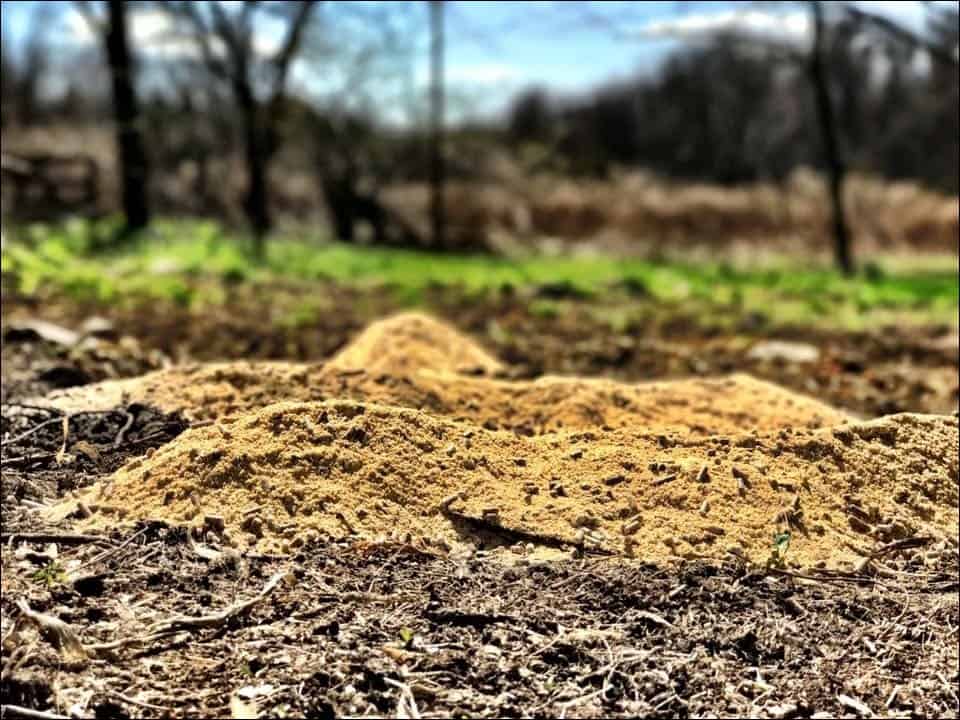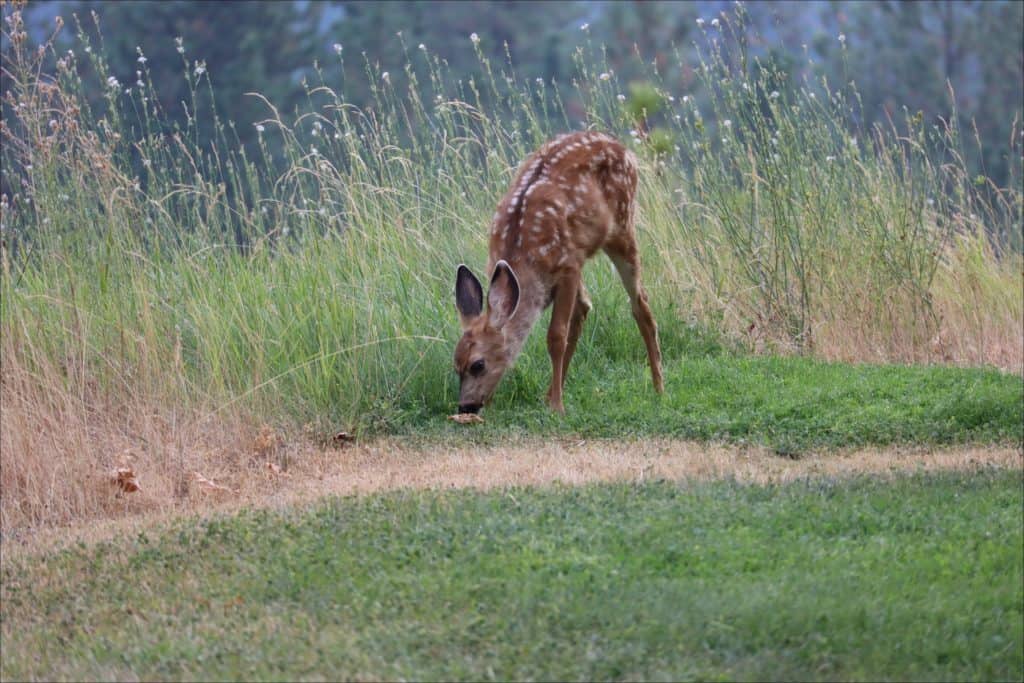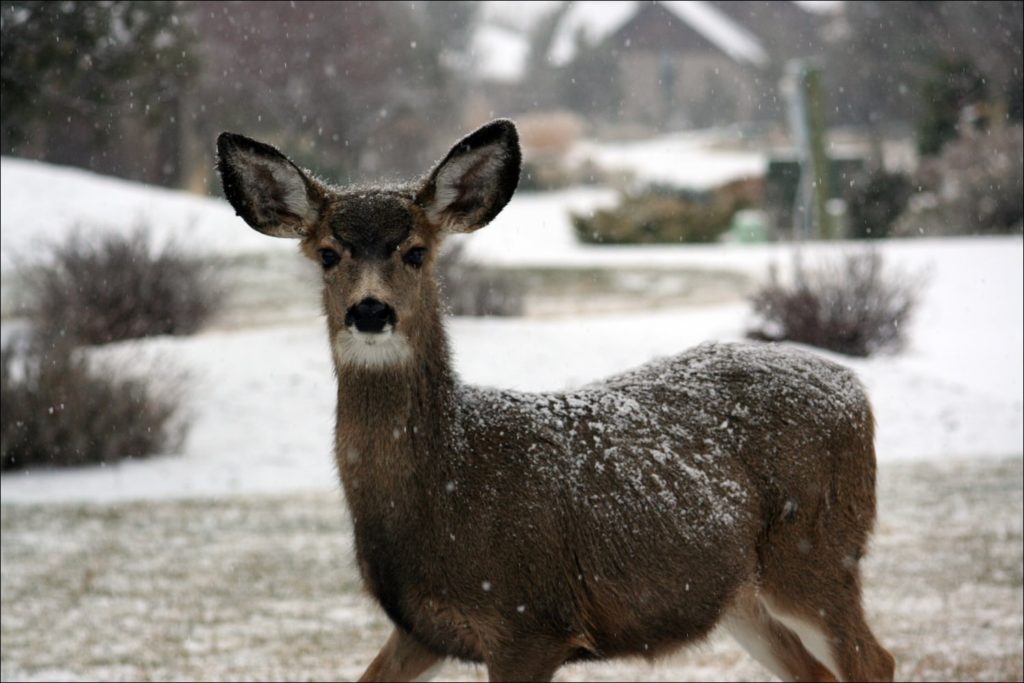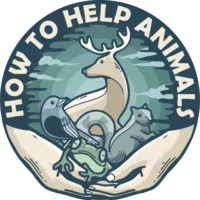It isn’t much that beats the sight of a proud stag with his doe and fawn in the morning, pacing around in your garden or field, when you are drinking your freshly brewed coffee. However, there’s one sight slightly better. It’s the same sight, but the deer family is eating something delicious. Corn is known for being a real treat for deer, but it’s not really good for them.
Although deer’s normal diet is made of herbs, tree buds, and blueberry sprigs, the best thing you can give the deer is a high-protein dense food like ensilage, pellets, or other concentrated fodder. Nevertheless, adding some fruits would also make them very pleased.
Daily serving your deer friend a pile of corn isn’t a good idea. Despite being high in calories and contains many carbohydrates and sugar, it’s not that great on the deer’s digestive system. The deer has four stomachs, like the cow, and process food differently than us. They break down food biologically with bacteria, while we break down food chemically with acids.
A similar situation would be giving yourself nothing else but beans to eat for several days. I would imagine you wouldn’t feel that good and your environment after a while.
What should I feed deer instead of corn?
I would assume your goal for feeding deer is to see them happy, have a great life, and give them the best opportunities in life, instead of giving them a simple feed in an open field where they are easy to target för hunters. In that case, my best advice would be a high-protein dense food like ensilage, pellets, or other concentrated fodder. My go-to product during summer has always been Attract-N-Fuel as a base. I then add fruits and pellets on top of the pile. They love it. In some cases, I even add some tulips if I have any.

What can I give the deer during winter instead of corn?
Deer need high-carbohydrate and high-fat during winter to preserve their fat. However, there aren’t many natural food sources available that provide that need.
Deer is custom to the winter and usually eats woody browse during this season. The fiber density is high and keeps deer’s digestion at work. However, since some breeds in the deer family are quite small, where the general height at the withers is between 23-27 inches(60-70cm), they cannot feed the woody browse because of the depth of snow. You will need to give them a helping hand. That’s one of the reasons why ca 40% of the herd dies during a hard winter. The most common casualties are the one-year-olds and eight-year-olds.
The first main issue is to make the deer find your help. You will need a good attractor. During winter, I usually go with a liquid, preferably Black Magic Liquid Deer Attractant. However, it’s key to have some good feed next to it when the deer came by. I have written an entire article on ways how you can help the deer in winter you might want to check out.

Good food for deer during winter and what to think about:
- Moist ensilage
- Crushed grain
- Feed pellets
- Don’t feed dry hay.
- Use an open space to place the food, so it has a good view of its surroundings, to reduce the risk of being attacked by predators.
- Don’t feed close to roads.
- If there’s much snow, help them by plowing a safe road for them. This will help the smell to spread.
- Strong individuals in the herd keep weaker ones away from the feeding stations. Have multiple feeding places, at least 170 feet (50m) apart from each other, so everyone gets to eat.
- If you are placing feeding stations outside your own garden or yard, make sure you have the owner’s permissions to put out the feeding station.
- If you start feeding deer, make sure to do it every year. The deer remembers and checks up on you next year. If the deer don’t get fed over time, their internal food digestion shuts off, and then they die even though the ground is full of green grass or corn.
- It’s OK to start in the middle of winter. Make sure you use an excellent attractor so they become aware of you.
What food should you NOT feed the deer:
- Dry hay
- Broccoli
- Cabbage
- Food scraps
- Bread
- Food containing sugar
- Bird seeds
Should I feed deer in my backyard?
If you have been visited by deer in your backyard hats off to you. You have been chosen.
Suppose you wish to feed wildlife in your backyard and especially deer, you can. However, it comes with responsibility. Since the deer will remember your house, they will return and expect food. So if you start feeding deer in your backyard, make sure it becomes a habit and not a one-time thing.
If you are blessed with a greater garden, and wan’t to make it a small haven for the deer, I would suggest:
- Plant a field of soy so the deer will come and eat it naturally
- Have at least two feeding stations as much apart as you can, so stags won’t kick away hungry fawns trying to get some food.
- If you have bird feeders, keep them separate from the feeding stations since deer can die eating bird seeds.
- Ensure you give them a mixed variety of nutrition, preferably in an already mixed bag like Backyard Seeds. This bag contains corn which is a favorite among deer. However, it’s not that nutritious on its own.

How do I protect my corn?
If you have a problem with someone eating your plants of corn and want to protect them from deer, raccoon, small critters, crows, mice, chipmunks, and others, I have a small tip. The animals like to eat the kernel of the seed and leave out the leaves and plant itself. My advice to stop that is to throw out some shelled corn as some freebies for the animals. They would rather take the easy stuff lying around instead of ruining your plants. Check to see if you have small holes in the ground first to see if there’s a critters problem.
When should you stop feeding deer?
It would be best if you stopped feeding deer when the deer can get their own food again. However, if the ground is all covered in snow and they don’t have any chance of getting at woody browse or blueberry sprigs, I would say, keep helping them.
